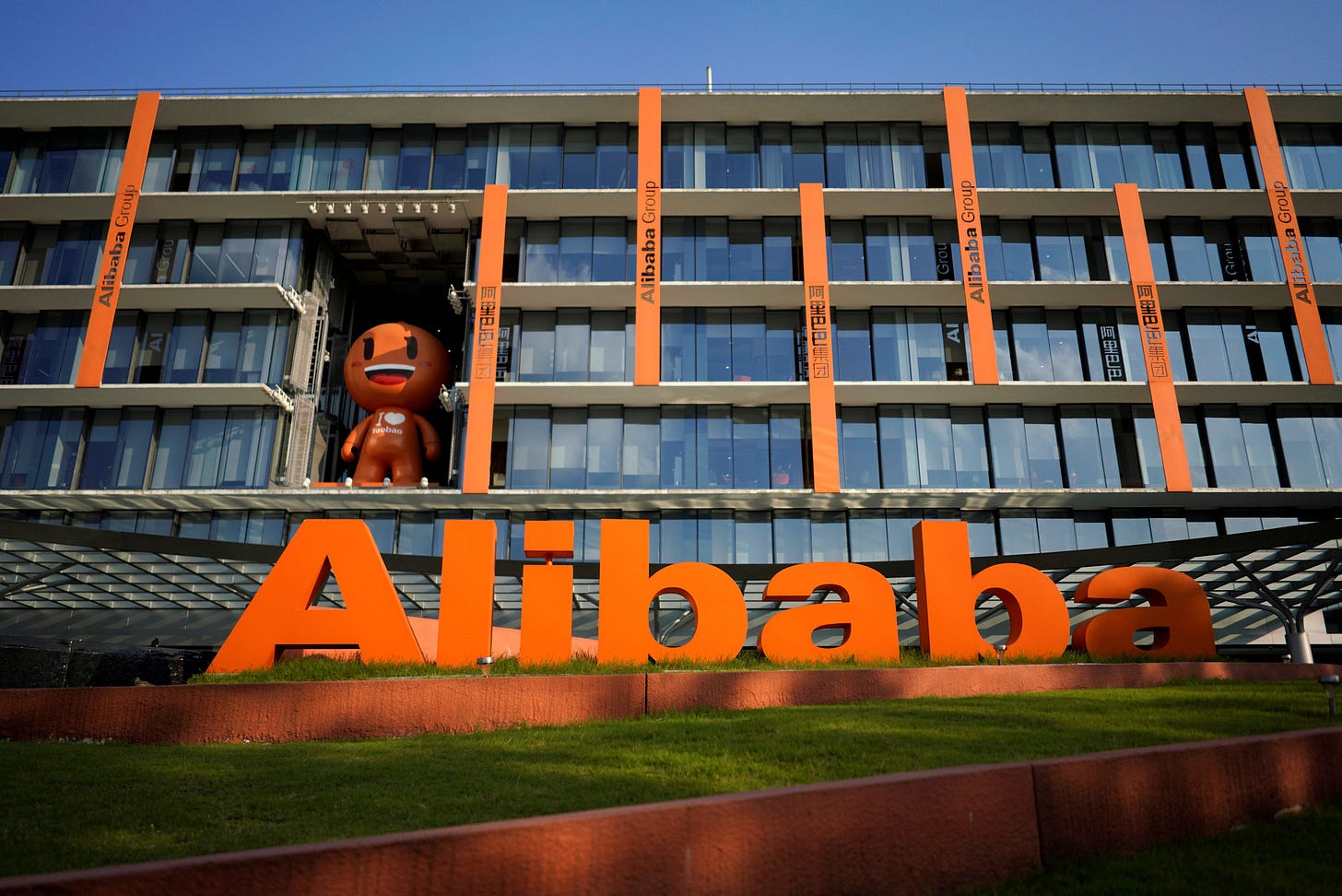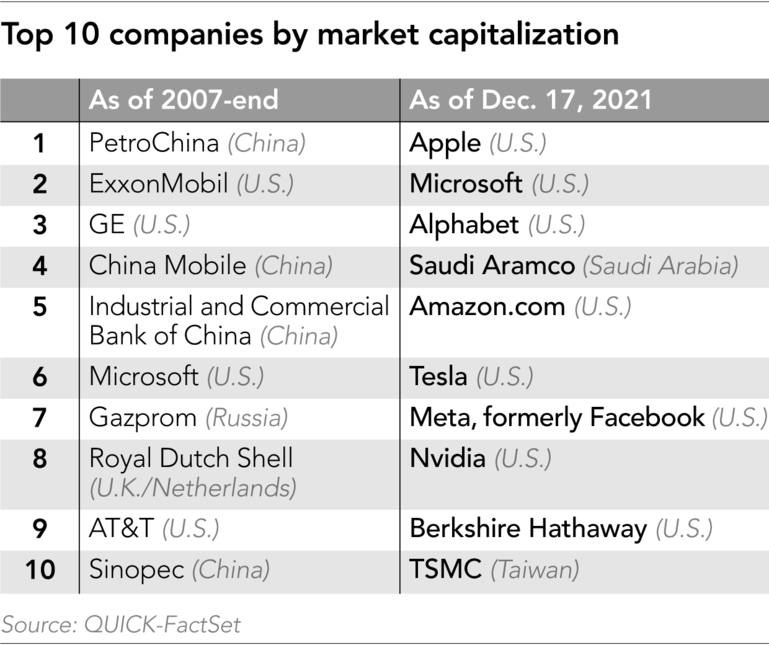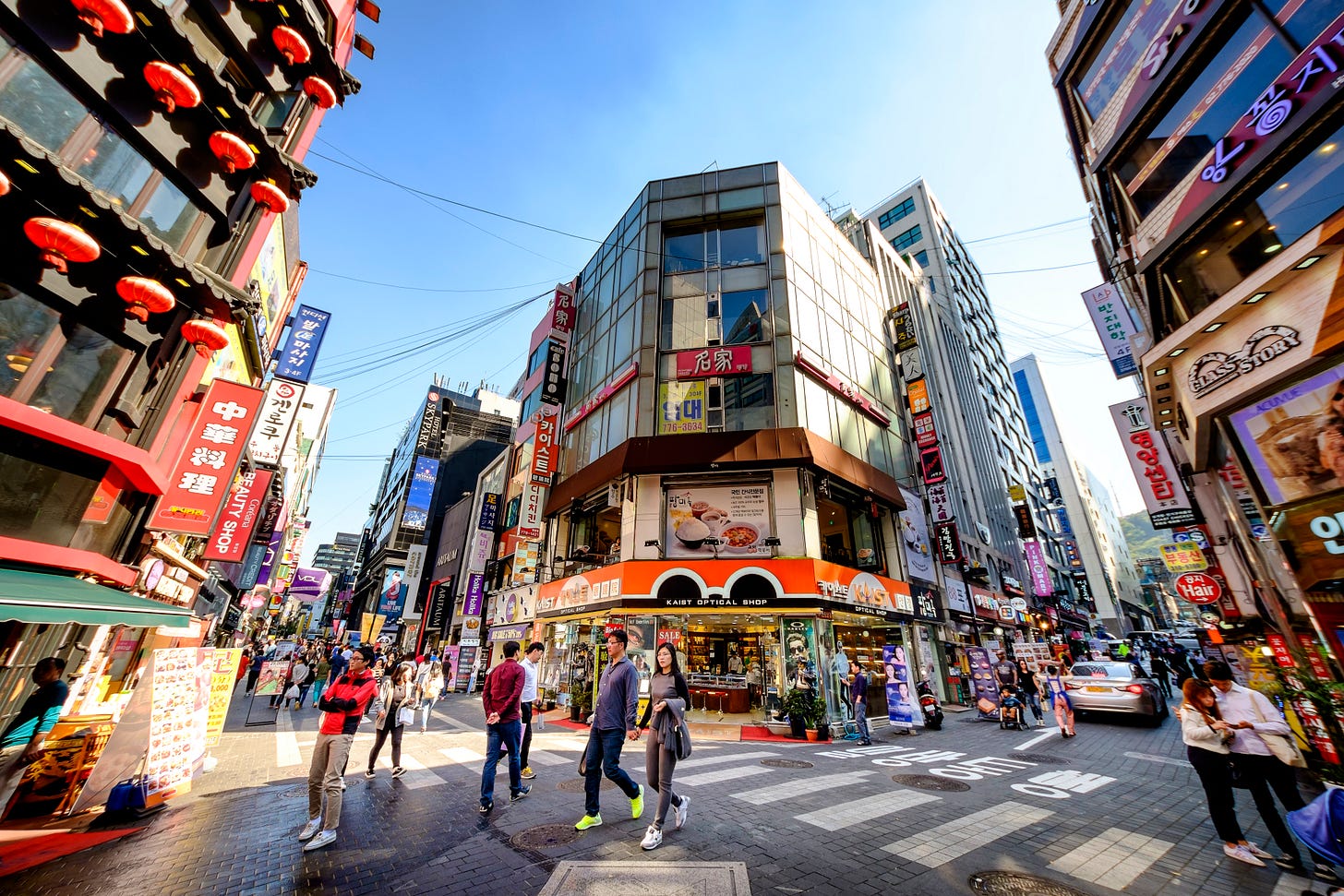Emerging Markets Daily -December 21
ChinaMobile's Mega IPO, Turkish Lira Swings Up, China Companies Fall out of Top 10 Market Cap, UAE Lures Asia Crypto Players, EM Faces Tough Recovery: Moody's
The Top 5 Stories Shaping Emerging Markets from Global Media - December 21
China Mobile Plans World’s Second Largest IPO This Year
South China Morning Post
“China Mobile is planning what could be the world’s second-largest initial public offering (IPO) this year, almost a year after delisting from the New York Stock Exchange.”
“The world’s largest mobile network operator by subscribers will sell between 845.7 million and 972.6 million shares, inclusive of an over-allotment option to meet strong investor demand, at 57.58 yuan each in Shanghai, according to an exchange filing. The proceeds of 56 billion yuan (US$8.78 billion) would also rank as the second-largest IPO globally in 2021.”
“The offer price represents a premium of about 52 per cent over China Mobile’s Hong Kong-listed stock based on its closing price of HK$46.45 on Friday. The stock will trade under the 600941 code in Shanghai.” South China Morning Post reports.
Turkish Currency Surges After Erdogan Unveils Lira Savings Scheme
Analysts call the plan a “stealthy rate hike.”
Financial Times
“Turkey’s lira rallied in the second day of chaotic trading after President Recep Tayyip Erdogan unveiled a new savings scheme that analysts described as a backdoor interest rate rise that could erode the public finances.”
“The gains on Tuesday leave the currency up roughly 50 per cent from a record low struck in the previous trading session. The intense volatility was triggered by a new plan by Erdogan to lure Turkish savers away from the dollar and gold by compensating them for exchange rate losses if they hold their money in lira.”
“The currency was recently trading at roughly TL12.6 against the US dollar, having struck a record low of TL18.4 on Monday before dramatically reversing course. The swings on Monday were the biggest on Refinitiv records stretching back to the early 1990s.”
“Refet Gurkaynak, a professor of economics at Ankara’s Bilkent University, described the new scheme as ‘in effect, a powerful interest rate hike’. He said that it could bring stability to the currency but warned that it could also have ‘dangerous consequences’.”
“That was echoed by Wolfango Piccoli, a Turkey analyst at the consultancy Teneo, who said that the move amounted to a ‘stealthy rate hike’ — and one that would be solely determined by the exchange rate.” The FT reports.
China Companies Fall Out of Top 10 List for Market Cap
Nikkei Asia
“Tencent Holdings and Alibaba Group Holding have dropped out of the global top 10 companies in market capitalization, new data shows, leaving no Chinese members on the list.”
“Tencent ranked seventh at the end of 2020, according to the QUICK-FactSet database, with Alibaba at No. 9. Tencent peaked at sixth this past February before its market cap tumbled 40% or so. It languished in 11th place as of Friday.”
“U.S. tech giants dominate this new list. Apple, Microsoft and Google parent Alphabet occupy the top three spots. Saudi Aramco is fourth, followed by Amazon.com, Tesla and Facebook operator Meta. Chip designer Nvidia comes in eighth, while Warren Buffet's Berkshire Hathaway is No. 9.”
“This leaves Taiwan Semiconductor Manufacturing Co. as the world's most valuable Asian company, at No. 10. The Shanghai Composite Index hit an all-time high in 2007 on high hopes for the Chinese economy. Four of the top 10 companies by market cap were Chinese back then, with oil major PetroChina at No. 1.”
“The aftermath of the global financial crisis saw the rise of Chinese technology companies, whose market caps swelled thanks to new business models and access to a massive market. But the government's tech-sector crackdown and tensions with the U.S. have reversed those fortunes.”
“Didi Global, the company behind China's largest ride-hailing platform, decided Dec. 3 to delist from the New York Stock Exchange just five months after its debut. The Chinese government has tightened scrutiny of companies that list overseas, for fear that foreign regulators will gain access to sensitive data.”
“On the other side, U.S. President Joe Biden's administration has stepped up pressure on Chinese businesses. It announced sanctions Thursday against drone maker DJI and dozens of other Chinese entities accused of taking part in human rights abuses or military development.” Nikkei Asia reports.
UAE In Talks To Lure Asia-based Cryptocurrency Players
UAE seeking to become a major hub for cryptocurrencies
Bloomberg
“The United Arab Emirates is in talks with Asian firms seeking to relocate to the Gulf nation, as part of efforts to transform itself into a hub for cryptocurrencies. ‘We’ve seen multinational firms right now waiting to relocate out of east Asia,’ Ahmad Belhoul Al Falasi, minister of state for entrepreneurship and SMEs, said in an interview with Bloomberg TV. The government is in talks with ‘several’ firms eyeing a base in the UAE given tougher regulations elsewhere and given the country’s resilience through the pandemic, he said.”
“Binance Holdings Ltd. has held discussions with regulators in the UAE about a potential headquarters in the Gulf nation, Bloomberg reported last week. ‘Stay tuned,’ Al Falasi said, when asked about Binance’s plans.”
“The oil-rich country has intensified its push to bolster the use of blockchain in recent years. Dubai, a financial center with a vibrant nightlife and tourism scene, is vying with Singapore, Switzerland and other regions to become a global crypto hub. On Monday, the government said the Dubai World Trade Centre will become a comprehensive zone and regulator for virtual assets and cryptocurrencies.”
“‘Cryptocurrency is here to stay, we’ve seen an increase in uptake,’ Al Falasi said. ‘As long as you are following right regulation, there is no harm in adopting such technology or putting the regulation in place.’” Bloomberg reports.
EM Faces Tough Recovery, Asia Best Positioned to Rebound
CNBC
“Emerging markets will face challenges in managing their economic recovery – but Asia is likely to fare better than other regions, according to Moody’s Investor Service. ‘The pandemic was tougher on emerging Asia markets than it was on advanced economies… the recession was tougher in emerging markets than it was on advanced economies,’ Atsi Sheth, managing director of credit service and research at Moody’s, told ‘Streets Signs Asia’ on Monday.”
“With vaccination rates still lagging and the omicron Covid-19 variant starting to spread globally, demand is not yet back to pre-pandemic levels for many emerging markets, she added. Global monetary policy tightening is also hurting demand, Sheth noted.”
“Last week, the Federal Reserve said it will end its easy monetary policy and aggressively dial back its bond buying. It also forecast three rate hikes next year to combat surging inflation. In addition, the Bank of England on Thursday hiked interest rates for the first time since the onset of the pandemic, increasing its main interest rate to 0.25% from its historic low of 0.1%.”
“‘So yes, managing the recovery is going to be really tough for emerging markets, but there’s going to be a lot of variation,’ she noted. ‘For instance, in Asia, you’re actually seeing the region doing relatively better than some other regions.’” CNBC reports.
“I am buoyant and expansive and uncontainable--but I always was so, only I never knew it!” ― Chitra Banerjee Divakaruni, The Palace of Illusions






